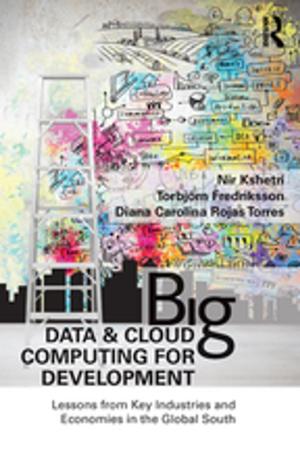African Youth Cultures in a Globalized World
Challenges, Agency and Resistance
Nonfiction, Social & Cultural Studies, Political Science, Politics, Economic Conditions| Author: | Paul Ugor, Lord Mawuko-Yevugah | ISBN: | 9781317184140 |
| Publisher: | Taylor and Francis | Publication: | March 9, 2016 |
| Imprint: | Routledge | Language: | English |
| Author: | Paul Ugor, Lord Mawuko-Yevugah |
| ISBN: | 9781317184140 |
| Publisher: | Taylor and Francis |
| Publication: | March 9, 2016 |
| Imprint: | Routledge |
| Language: | English |
All over the world, there is growing concern about the ramifications of globalization, late-modernity and general global social and economic restructuring on the lives and futures of young people. Bringing together a wide body of research to reflect on youth responses to social change in Africa, this volume shows that while young people in the region face extraordinary social challenges in their everyday lives, they also continue to devise unique ways to reinvent their difficult circumstances and prosper in the midst of seismic global and local social changes. Contributors from Africa and around the world cover a wide range of topics on African youth cultures, exploring the lives of young people not necessarily as victims, but as active social players in the face of a shifting, late-modernist civilization. With empirical cases and varied theoretical approaches, the book offers a timely scholarly contribution to debates around globalization and its implications and impacts for Africa's youth.
All over the world, there is growing concern about the ramifications of globalization, late-modernity and general global social and economic restructuring on the lives and futures of young people. Bringing together a wide body of research to reflect on youth responses to social change in Africa, this volume shows that while young people in the region face extraordinary social challenges in their everyday lives, they also continue to devise unique ways to reinvent their difficult circumstances and prosper in the midst of seismic global and local social changes. Contributors from Africa and around the world cover a wide range of topics on African youth cultures, exploring the lives of young people not necessarily as victims, but as active social players in the face of a shifting, late-modernist civilization. With empirical cases and varied theoretical approaches, the book offers a timely scholarly contribution to debates around globalization and its implications and impacts for Africa's youth.















